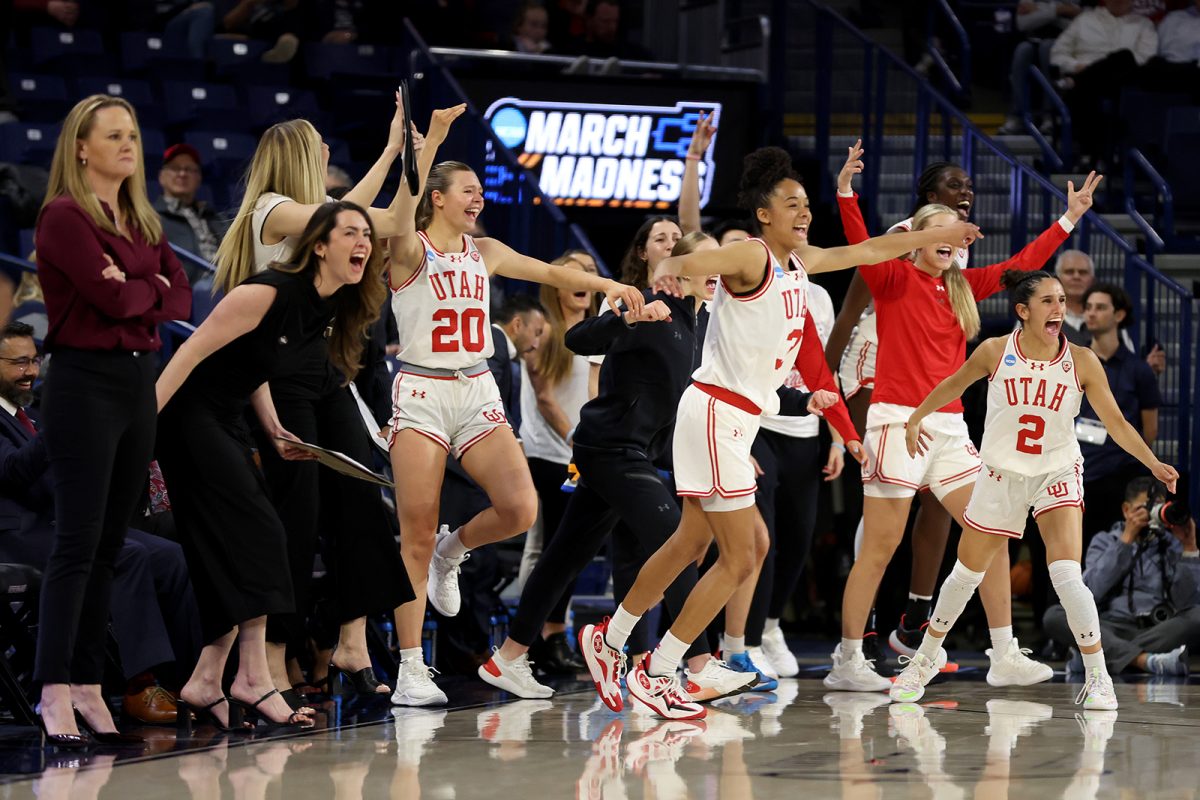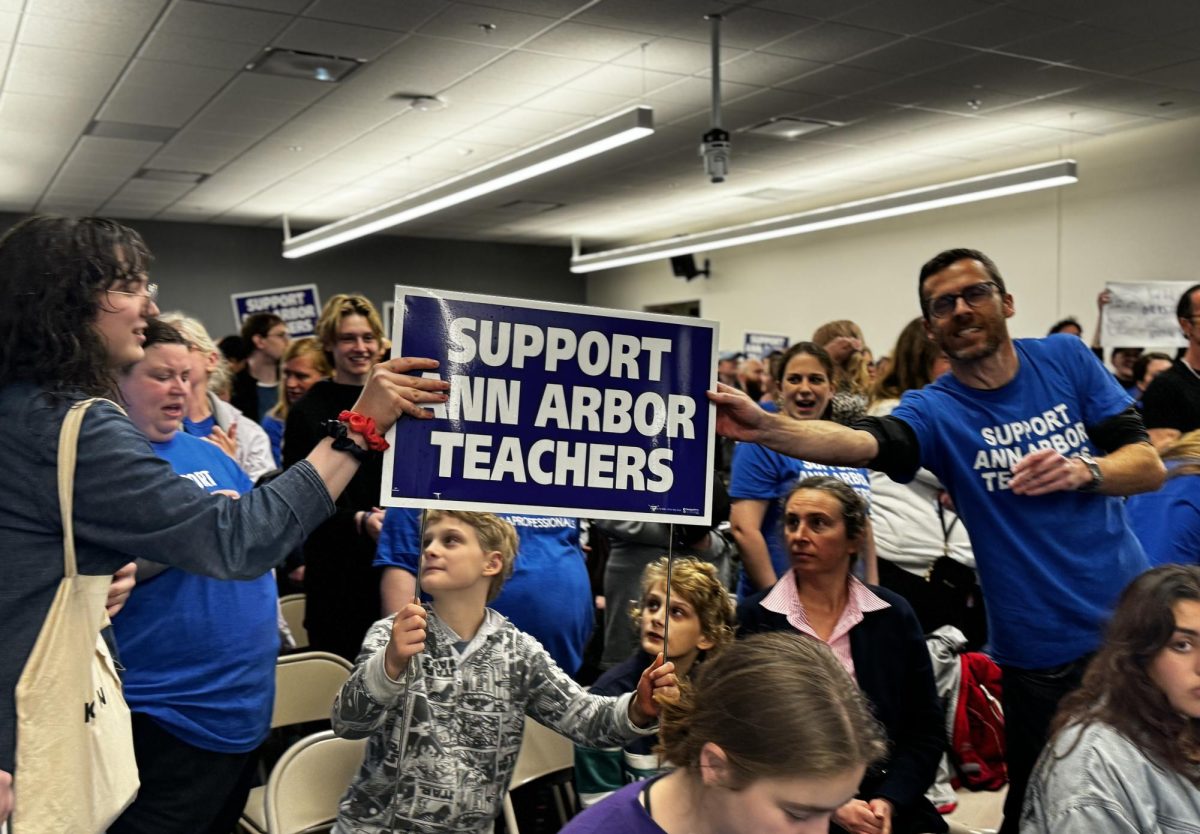 Today’s college graduate should not expect a job in their studied field upon graduation. They should however, plan on being thousands of dollars in debt, with nowhere to turn but back to their parents’ homes. The world seems bleak for incoming freshman nationwide, yet more students than ever are enrolling in college.
Today’s college graduate should not expect a job in their studied field upon graduation. They should however, plan on being thousands of dollars in debt, with nowhere to turn but back to their parents’ homes. The world seems bleak for incoming freshman nationwide, yet more students than ever are enrolling in college.
In 2009, 17.5 million students attended degree granting undergraduate programs in the United States, according to the National Center for Education Statistics. College enrollment has been growing at a rate of approximately three percent a year since 2000.
While a greater number of students enroll, their tuition has also been steadily rising. The average cost of attending an American public four-year institution in 2009 was $14,870, with private tuition costing an average of $32,475 per year. This compares to average tuition costs of $6,320 and $13,861 in 1980 respectively, adjusted for inflation.
These numbers paint an alarming picture. The volume of college students is rising, the cost of college is rising, yet the number of college graduates finding jobs is not optimistic.
A recent study from Northeastern University in Boston published in the New York Times found that 22.4 percent of college graduates in 2010 were completely unemployed. Another 22 percent were employed, but in jobs that do not require a degree. To compare, the classes of 2006 and 2007 had an employment rate of 90 percent upon graduation.
“The non-employed tends to now be the high school grad more than the college grad because of the pecking order,” said John Boshoven, Community High School guidance counselor. “The college grads are now taking the jobs at Kroger and at factories if there are any, whereas they didn’t require that degree to get the job. They are overqualified, but they are employed.”
Boshoven argued that a college degree as the new standard of employment should mean greater incentive to attend college.
“I think more and more kids are seeing that there’s value in higher education, ‘cause there ain’t no jobs without it,” said Boshoven. “There are no high school jobs worth a lick. Maybe in the service economy with no benefits, but is there any future in that?”
Statistics do show that the average lifetime earnings of college graduates are far higher than those without a bachelors degree. A 2011 study from the Pew Research Center titled “Is College Worth It?” shows that on average, college graduates can expect double the life earnings than those with just a high school diploma. However, the report also illustrates that high tuition costs are one of the most prevalent barriers from a college education for many students. Of participants polled, 75 percent agreed that college is too expensive for most Americans to afford. According to the report, “Nearly every parent surveyed (94 percent) says they expect their child to attend college, but even as college enrollments have reached record levels, most young adults in this country still do not attend a four-year college. The main barrier is financial. Among adults ages 18 to 34 who are not in school and do not have a bachelor’s degree, two-thirds say a major reason for not continuing their education is the need to support a family. Also, 57 percent say they would prefer to work and make money, and 48 percent say they can’t afford to go to college.”
Approximately nine out of ten CHS seniors will attend an either two or four year degree-granting institution, including those who take gap-years, according to the counseling office’s own records.
CHS senior Emma Weichman will be going to college following a gap-year in New Zealand. While interested in studying current events regarding agriculture and factory farms, she is uncertain about her future career.
Regardless, Weichman plans on attending college to explore personal interests, and to stay competitive as a future job applicant.
“I want to go to college to discover what interests me the most. I was talking to [CHS English teacher] Judith about it, and she said that it’s totally fine to go to college like that. No matter where you go, it really helps you to narrow that down and get involved with things that you wouldn’t be involved with before. Find out what piques your interest.”
However, Weichman is apprehensive about the high cost of college and is open to other options.
“You hear about people spending so much money on college and leaving school in debt and kind of screwed. And then you hear about other people who have chosen not to go to college, and who have started companies and have done well without the debt— people who have gotten an education through other stuff without that institution.”
According to “The Project on Student Debt,” an independent non-profit organization, student debt is on the rise. In 2008, 67 percent of all graduates from both public and private four-year institutions carried student loan debt, at an average national level of $23,200. Average student loan debt in 2004 was $18,650.
An analysis by Mark Kantrowitz, publisher of financial aid search engines Fastweb.com and FinAid.org, highlighted common characteristics of college students graduating without any debt. Attributes include enrolling at an in-state public college, enrolling in a 2-year or shorter program, living at home with parents and spending less on textbooks. In other words, cost cutting.
“You don’t have to go to the most expensive college in the block,” said CHS counselor Boshoven. “There are ways to save money on colleges. Start with a two year degree at a community college and transfer. You’ve saved a ton of money doing it that way.”
Faced with unemployment, enormous debt and high costs of living, a rising number of college grads are moving back in with their parents. According to a May 2011 poll by Twentysomething Inc., a marketing and research firm based in Philadelphia, 85 percent of college seniors polled planned to move back home after completing their degree.
Pieter Boshoven, son of the CHS guidance counselor, did not expect he would become one of these students. With a degree in Mechanical Engineering from the University of Michigan, but without a job lined up upon graduation, Boshoven moved back to his parents’ home in Chelsea, Michigan in 2008.
“I was pretty much burned out [after college],” Boshoven explained. “I wanted to take a little break, so I did take a month or two of unwinding and trying to get my head on straight…I got a part time job at the end of the summer just to keep me busy and make a little money while I was looking for full time employment, and that’s right when our huge economic crisis hit, that fall, right after I graduated. That made things quite a bit tougher, at least being in Michigan, seeing as I was a new engineer with no real engineering experience, competing with all these freshly laid off engineers. Things got a lot tougher at that point. Jobs were fewer, and I wasn’t getting interviews.”
Boshoven worked a number of odd jobs: high school tutor, job coach for adults with developmental disabilities, at Barton Hills Country Club, behind the customer service desk at a grocery store.
“I didn’t like the feeling of dependency. You go to college, you’re independent, you’re making independent decisions, you’re living on your own. And than you come back, you kind of feel like you’ve regressed in a way. You feel like it’s the wrong direction to be heading…it was emotionally kind of hard to feel like you were going backwards rather than forwards.”
He moved out of his parents house after a year, but still without a full-time engineering job.
“I was scared I wouldn’t end up ever finding work in my intended field. The farther away I got from being in school the more out of practice I was with everything I had learned, and I was becoming a less viable candidate for jobs that I applied for.”
Three years after he graduated, and now married, Boshoven landed a full time job through an internship as a Combustion Specialist for hi-tech company Smartburn in Madison,
Wisconsin.
Boshoven advises students in his previous situation to persevere and to not lose hope. “It took me three years to find a job, but once I did, I felt proud of the fact that I didn’t give up and was able to find something in the end.”
As the optimistic graduated high school senior enters into the world of higher education next fall, they will be met by millions of others, many competing against each other for work by the end of their four years. While a college degree is becoming the new bar for employment, tuition is rising, jobs seem scarce, and debt upon graduation is likely. How far should students be expected go for their degrees? What cost is too high for an uncertain future?
















